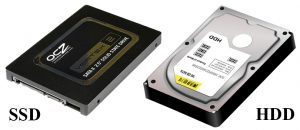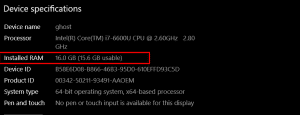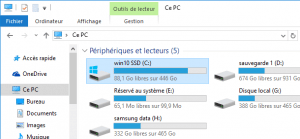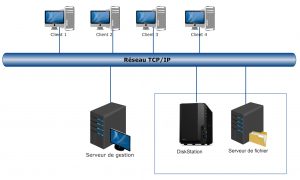Today, we will focus in this article in particular on the memories that make up a computer: the hard disks, used to store data, and the random access memory, RAM. In short, the difference between hard disk and ram
Hard disks

A hard disk is an organ or component of a computer, used to store data permanently. It is the computer’s memory since its role is to store computer data. The hard disk contains your operating system, your installed programs and your personal data.
RAM (Random Access Memory)

The RAM memory, also called random access memory, is therefore an indispensable part of a computer. It is a component of a computer that allows short-term access to data. It provides temporary storage for programs that are open and your operating system. The instantaneous operations that the system performs (application loading, web browsing, data processing,…) access short-term data. That’s why the speed and amount of installed memory play an essential role in terms of a computer’s performance.

Difference between hard disk and RAM
| Hard disk | RAM |
| The hard disk is also called secondary memory. | RAM is also called primary memory. |
| The hard disk drive (HDD) contains moving mechanical parts such as the arm, spindle, etc. | RAM has no moving mechanical parts and consists of transistors, etc. |
| The hard disk has a higher read/write time. | RAM has a short read/write time. |
| The hard disk is very high in storage capacity. | RAM memory is generally smaller in capacity than the hard disk. |
| The hard disk drive (HDD) produces noise due to mechanical movements. | The RAM does not produce any noise. |
| The hard disk is less expensive per unit of storage. | RAM is expensive per unit of storage. |
| The hard drive does not have much impact on the speed of the computer. | If the RAM is low, the computer will become slow. |




